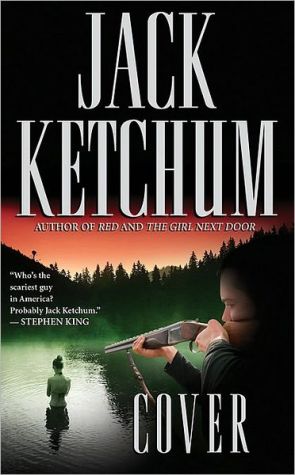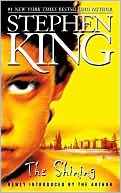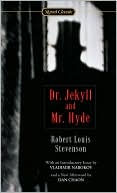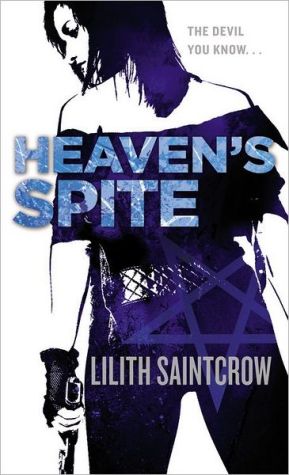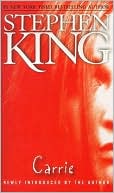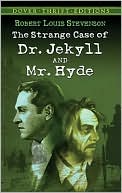Cover
A battle-scarred Vietnam vet has been living alone deep in the woods, but when a group of weekend campers enter the area his fragile grasp on reality breaks and he believes he's back in the jungle . . . surrounded by an enemy he needs to kill.
Search in google:
A battle-scarred Vietnam vet has been living alone deep in the woods, but when a group of weekend campers enter the area his fragile grasp on reality breaks and he believes he's back in the jungle . . . surrounded by an enemy he needs to kill.
Cover\ \ By Jack Ketchum \ Dorchester Publishing\ Copyright © 1987 Dallas Mayr\ All right reserved.\ ISBN: 978-0-8439-6187-4 \ \ \ \ Chapter One\ Tuesday Night, Wednesday Morning \ She went to her knees beside him and he could smell the clean fresh scent of her soap, of hair slowly drying in the fading sunlight. Their familiarity stabbed at him.\ Hold on, he thought.\ She helped him build the fire. The kindling was good today-good and dry. The morning rain had been gentle, brief, the afternoon hot. A beautiful day. An easy day. The forest quietly drifting in a warm fall breeze. They worked together silently. And he thought that perhaps it was just that, the very ease and beauty of the day, which had brought them to this.\ Because even peace and beauty could betray you. Not everyone died in firefights.\ Not everyone died screaming.\ There had been plenty of time to think. Time for her to wander all the old clear trails of her dissatisfaction, of all she missed. Alone. Without the boy, and without him.\ He looked at her, the wide blue eyes cast down, the mouth tight, the small thick hands busy breaking branches, stripping twigs.\ She's getting old, he thought. The brow furrows easily now.\ I'm making her old.\ He felt a familiar sudden access of rage and tenderness, fury and tears. He turned away.\ I cry so easily these days.\ In Nam he'd nevercried. He'd held it all together, done what he was supposed to do. It was a matter of survival then, not to show weakness, but he couldn't really say what had changed. Wasn't it still a matter of survival? What was he doing here but finding some way to get on? A different woods, sure, a different partner-but the enemy was still out there. A kind of friendly fire. From somebody who would bag you and take you away from here to somewhere you'd be no damn good at all and maybe dangerous to boot. Take you home.\ While there was no home. Unless it was this. As though there could ever be. As though the Nam had ever stopped for him.\ He felt his guts contract, a collision of two fears. He was afraid to be alone. Deathly afraid. It skittered inside him like a mad dog.\ But he could never, never make it out there.\ The fire caught and crackled. From somewhere inside him he heard the whine of incoming mortars.\ Nobody was taking him out of here. Not ever. Not even her.\ What happened, what did you do, when you could no longer trust the one you needed most, when you could no longer trust your partner?\ He fed the flames and did not look at her.\ * * *\ Nine years, she thought. Nine years and still he doesn't smile, he doesn't laugh-and for five of those years I've had a child with him, Lee Jr., smart and blond and strong, and still he won't call him by name. He's just "the boy" to him. His only son. And now I've had to send him away again-my one comfort here-because his father's past is surfacing again, I can feel it, the tightrope walking, the anger and frustration building and the paranoia so bad that even to be gentle with us is a struggle for him and he can hurt you, I know he can. Hurt you bad out here.\ And now there's another one coming. Another child. Seven months from now. I had wanted a girl.\ What if he knew?\ Would he be glad?\ I don't think so. He's incapable of that, of gladness.\ It would be just another thing for him to fear, one more chance for the world to target him and hurt him while he hides here in the bushes. Another terrible drawing-out.\ So he doesn't know.\ And I sit building a fire for him. The billionth fire between us. Over and over.\ While Lee Jr. plays at his grandmom's house, while something new and-to me-something beautiful and exciting grows inside me. While he stares into the fire, eyes so sad one minute, so blank and empty the next. I told him once that if he killed himself I didn't want to be the one to find him, lying out here like some discarded sack. He understood that. He said he did and I believed him, and he promised. But who else is there?\ I will find him. I will be the one. I know it.\ Who else is there?\ If I leave him, who's left? So many times I've asked that question, and every time the weight is heavier than before. I could spend my life in tears for him, for us, had I not gotten some of him burned into me by now, could I not hold back as he does. But it feels like doom to me, this life. Like fate. Like the punishment for some sin and God help me, I feel like a traitor, like Judas, but I've got to stop it.\ He scares me.\ Nights when he paces at three or four in the morning, up and back in front of the campfire, up and back, and then stops and listens and I can see the muscles of his back go rigid and I know what he's hearing. It's not the night sounds, the frogs, and crickets. It's not this woods here. You can see the sweat gleaming on him, pouring down his back-and the night might even be a cool one, but it doesn't matter. He's in another forest and it's hotter there. He's listening to his buddies dying, groaning in their sleep. He's hearing shelling, firing. It's more than remembering.\ He's there.\ He comes back to me and we talk. He sees I'm awake and he tells me. I listen. I can do this for him, what they could never do back there-they could never really speak to one another. Because they were men, I guess, for one thing, and soldiers-but also because you could never know who would be out there in the jungle, moving closer at the sound of your voice, crawling up to kill you. So at three, four in the morning, at daybreak, at dawn, I can do this for him, I can talk.\ And what will he do without that?\ I'm his friend, his lover, his comrade-at-arms.\ And what will he do without that?\ I tell myself it can't be helped, I can't go on. I will not bring another child into the world, to waste ourselves out here. But it's more than that.\ I can't be this lonely.\ Because he's hardly ever here with me. Not really. He's back there somewhere, miles and years ago, in swamps and heat. I swear I never knew the world could be this lonely.\ I can't lie to myself. I know what I'm doing. I'm killing him. I am.\ He's a big, strong, thirty-nine-year-old man who knows more about survival than most men will ever need or want to know. He could break me in half, it would be easy, he could break most men in half. Yet his life is frail. So very frail I think the wind could blow it away, so tender.\ So I know what I am, and what I'll be tomorrow when I leave here. I can feel his eyes on me now like the eyes of a child abandoned in the forest, can feel them already, like the eyes of cats drowned in paper bags, and I could die myself for the hurt I'm giving him, I could die of my own betrayal. It is betrayal.\ I love him. I see him clearly. I have to start living again, but I have no illusions, I know who it is that is leaving him to save her own sad, frightened, alone and lonely self.\ A killer.\ The enemy.\ Yet another.\ Night fell, and the wind came up chilly from the west. They piled more wood on the fire, large logs now to get them through longer and longer stretches of time, to minimize their effort. They rolled cigarettes from the can of tobacco, drank coffee. The dog, Pavlov, a three-year-old shepherd with a nick in its left ear, curled up opposite them and looked from one to the other. The man pulled off his high leather boots and moved his feet forward toward the fire. The woman got up and brought them blankets from the tent. She handed him one. He draped it over his shoulders.\ After a while the man reached behind him for the ghetto blaster and flipped through a plastic box of tapes. When the music came through it was softer than the crackling of the fire.\ Born under a bad sign I been down since I began to crawl If it wasn't for bad luck I wouldn't have no luck at all.\ The dog shifted restlessly. Its ears ignored the music and twitched to the sounds of the night. The man took a pint of bourbon out of his knapsack, uncapped it, swallowed, and handed the bottle to the woman. She stared at it a moment then shrugged and took it from him.\ "You know, don't you," she said.\ He nodded. "I do."\ "It'll have to be first thing in the morning."\ "I'll get us some breakfast, give you a hand."\ He took the pint back from her and drank again. "You won't try?" she said.\ "I did try."\ "It was a while ago."\ "Not long enough."\ The wind shifted east and blew smoke at him. He didn't seem to mind.\ They sat there.\ "We'll miss you, Alma," he said. She smiled a little because the dog was included. It was like him.\ He drank from the bottle. It was careful, even drinking-not heavy.\ She watched him lean back through the pale curl of smoke and wriggle his toes, warming them by the fire. She saw his eyes pool up, then he blinked and they were clear again.\ He handed her the whiskey.\ "Tell the boy for me ... tell him his daddy just got mean. That the war did that. Tell him he used to do combat-with civilians, with the police, whatever-that he'd go out looking for it, to set things up, in bars, places like that. You know. Tell him that was what I got to be. And that was why I couldn't be with you out there. Explain to him, you know? When he's old enough.\ "And if anybody ever tries to draft him, kill them. Kill the son of a bitch for me. I mean it."\ He turned the music louder. He tossed the cigarette into the fire and shook his head.\ "Fuck me," he said. "Ah, fuck me. Don't tell him nothin'."\ She reached a hand across to him. He took it and began to cry.\ The dog sat watching them as she slowly drew him toward her and down to the cool hard-packed earth.\ It was hours before dawn when she woke. Like an animal alert to danger she was instantly awake. He was gone.\ She peered through the flaps of the tent. The fire burned wide and high, almost recklessly this near to her. She saw him on the other side of it, the dog Pavlov following in his footsteps just a few paces behind. It was a scene she was familiar with except for the size of the fire. She turned back inside and slipped on a pair of shoes. She heard him muttering, the dog whining.\ She stepped outside into the flush of heat while the breeze played cool across her back. The dog heard her first, turned in her direction and took a few steps toward her, then hesitated between the two of them. As she passed she stroked its muzzle.\ "Lee?"\ "... by the carload, straight through Cu Chi ..." she heard.\ She approached slowly.\ He faced the stand of elms, black now in the moonless night. She saw the glow of his cigarette, the trailing wisp of smoke. She watched him take two long strides to the left, three to the right. She knew she should not surprise him.\ "... open-housing project was what they called it. You just fly the hell over and then you drop a couple thousand leaflets tellin' 'em to get out, pick up your stuff and run, then you wait a few minutes and bring in some choppers and bomb the sucker away, level it, level the sonovabitch! 'Doze it, torch it. See some twenty-five papa-sans out there after that living in foxholes, fifty, sixty years old. Hell, you gotta live somewhere, right? And there ain't no ville anymore, 'cause we just plowed it under. Village is a memory, man! Village is gone! Bulldoze it right to the bare ground ..."\ "Lee ...?"\ "So they talk to you. Fifty feet away hiding in foxholes out there in the bushes, chattering away ..."\ She touched him on the shoulder.\ "... chattering like birds ..."\ She squeezed the shoulder gently and he stopped and half turned toward her, dropped the cigarette and ground it under his heel.\ "What the fuck you want?"\ "Are you all right?"\ "You care?"\ "Oh god, Lee. Of course I care."\ He nodded. "Sure. Of course you do."\ But the voice was cool, deliberate, and she knew he was not there for her anymore.\ "Come get some sleep," she said. "Come inside."\ "Can't."\ "Come on."\ "Where's Sprinkles? Where's that friggin' cherry?"\ "He's not here, Lee. Sprinkles isn't here. Come on now."\ "Fuck it. Leave me alone."\ "Come on, Lee."\ "I'm supposed to sleep?"\ "Yes."\ "Really?"\ "Yes."\ "I'm supposed to sleep now, when, ah ... when we got all these papa-sans and mama-sans scattered all the hell over the place, livin' in wheel ruts? You want me to get some sleep? Unh-unh. No can do. Got work to do. Got cleanup. So screw all that and the horse you rode in on."\ "Please, Lee."\ "You heard me."\ He turned completely toward her and she saw that it was useless. The face had gone pale and hard, the eyes glittered. In the eyes she saw an old familiar look that had grown more and more frequent these past three weeks, that spoke to her of some cold, hard alienation of the soul, a strange blankness that seemed to her like some synaptic misfire, some cerebral heart murmur that would yield to no outside analysis, much less to outside urgings.\ It was as though he suddenly wore a mask and not a face at all-no, as though he were the mask yet somehow lurked beneath it too. Lee, in league with what possessed him. It was times like these that he frightened her most and made her saddest. Because there was so little hope for a man who could do this, who had to do this just in order to survive.\ She walked back to the tent. The dog followed.\ And tomorrow it would all be over. She would be gone. For good. After all these years. The thought brought tears to her eyes. But tears did not have the power to make her stay.\ Good night, she thought. I love you.\ She crept inside. The dog stood watching her a moment, then lay down just outside the tent flaps between her and the fire. She looked at the dog and almost cried again. She pulled the sleeping bag over her and closed her eyes. She realized she hadn't even bothered to take off her shoes. She wouldn't now. It was barely three hours till daybreak.\ Once, much later, she heard him opening the tin of tobacco, and then heard his heavy footfalls as he moved away toward the trees. She heard him cry out once-an animal sound, pained and hollow-and then till morning heard him talking, moving, prowling in the dark.\ (Continues...)\ \ \ \ \ Excerpted from Cover by Jack Ketchum Copyright © 1987 by Dallas Mayr. Excerpted by permission.\ All rights reserved. No part of this excerpt may be reproduced or reprinted without permission in writing from the publisher.\ Excerpts are provided by Dial-A-Book Inc. solely for the personal use of visitors to this web site. \ \
